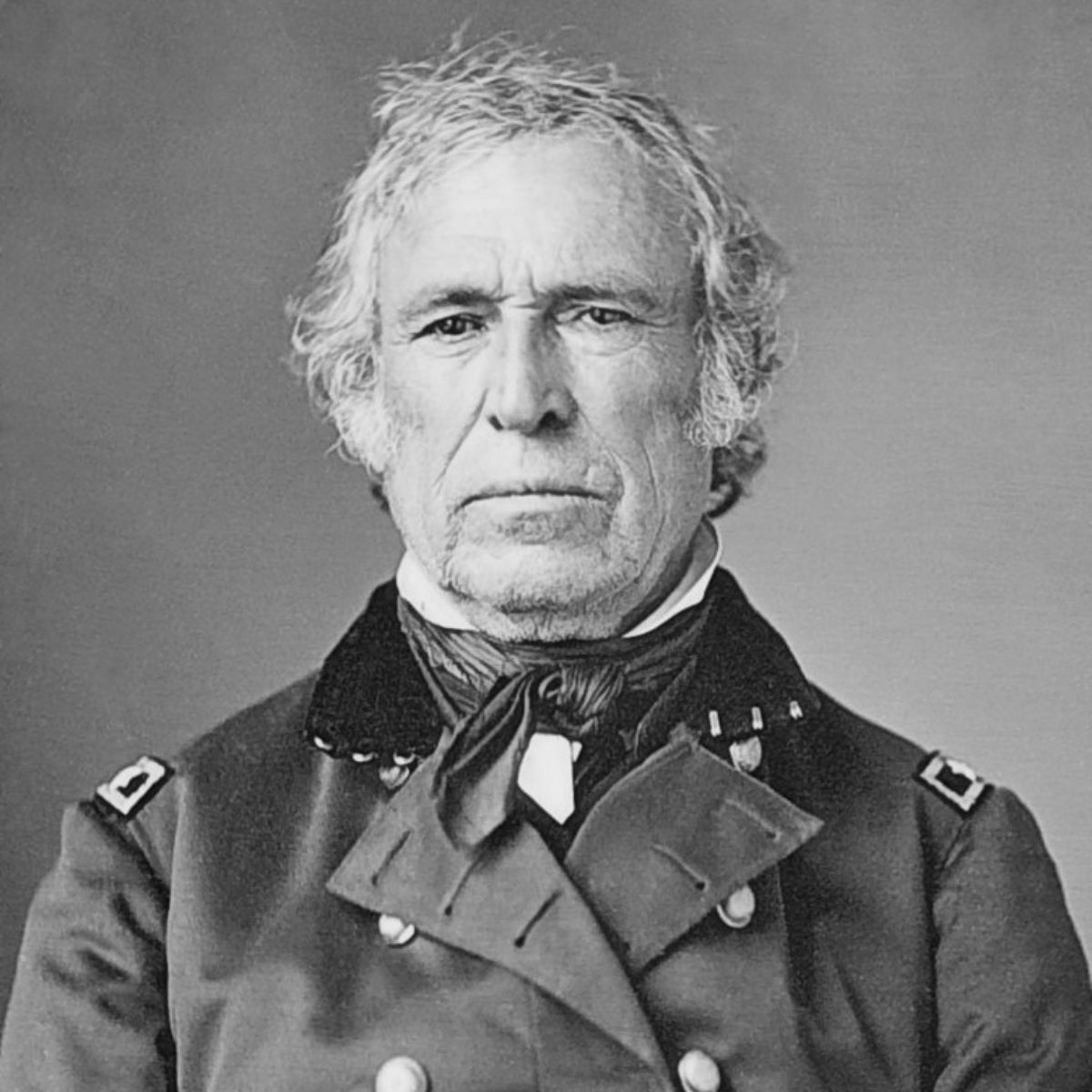Zachary Taylor isn’t one of the most well-known presidents in the history of the USA. However, that does not make him a man that we should erase from textbooks or from our learning.

As the twelfth President of the USA, he was responsible for some of the biggest victories in the country's military history, particularly in the Mexico-American war - but his all-too-brief tenure at the White House (a period of only sixteen months) was marred by his slightly muddied and vague political beliefs and his failure to bring forth any progress on the dark issue of slavery.
Early Life
Born in the year 1784, Taylor’s early life was spent in Kentucky, where he was actually raised on a plantation. Later in life, he became an owner, too, in his hometown of Baton Rouge, Louisiana. Aside from this, he also had a long and varied military career, which actually spanned over forty years.
However, his life is one of the interesting juxtapositions as although he owned a plantation himself, he actually refused to defend slavery, meaning that his politics and his ideas were often slightly blurred and according to the ethics and morality following this time - particularly of today - would seem very at odds indeed.
In some ways, this worked, as it meant he could appeal to two different sides of the electorate. In the North, people would vote for him purely because of his military work and his service with the army. In the South, people would vote for him because he was a slave owner.
At the age of 24 in the year 1808, he became a US Army Officer, and by the year 1812, was officially a Captain. In the years that led up to the War of 1812, Taylor had helped to stop the Native Americans from resurgence and uprising against the Western Frontier. When the US went to war with Mexico, he led the men through the Rio Grande and managed to capture Monterey.
Unlike his time as President, his time in the military was much more successful. He was generally loved and respected by his comrades and known as a commander who would pitch in and do his work, getting his boots dirty in the process. He was affectionately nicknamed “Old Rough And Ready."
Taylor’s Presidency
It was when the Mexican war started to conclude in 1848 that he emerged as a potential candidate for the Presidential campaign on behalf of the Whig party.
Politically unorthodox and always very vague about his beliefs, some quarters wondered whether he had any at all. Taylor was duly elected as the Whig candidate for the election of 1848, with Millard Filmore as the Vice President.
For the opposing Democratic Party, the candidate for President was one Lewis Cass.
Again, another unusual facet to his campaign was that unlike other Presidents (and certainly most unlike the Presidents of the 20th century), Taylor did not go and meet voters, nor did he seek to make any clarification on his own political beliefs or values.
Instead, he sent out campaigners on his behalf and had someone to stage-manage his role for him. He even refused to resign his military command during the run-up to the election and did not give it up fully until well into his tenure in 1849.
After his victory, he set about trying to make the cabinet as geographically diverse as possible whilst at the same time making sure he did not appoint any Democrats to the House.
The outgoing President, James Polk, was not impressed by Taylor at all, thinking him lacking in substance and any sound political ideology.
Taylor also failed to make much of an impression on many of his colleagues, who found him lacking in many departments and seemingly uninterested in the responsibilities of the job.
Taylor and Slavery
The main issue he faced during his brief Presidency was the expansion of slavery. Tensions regarding this issue started to flare in February 1850. Even though he had himself been a slave owner, his many years of military experience had led him to believe that new slave states should not be created, and he was opposed to moves to make it so.
The dispute over slavery centered on New Mexico and California – they would be allowed to have independence on this issue. In some states, slavery would be allowed to continue, but the trading of slaves themselves would be banned outright.
Taylor wanted these new states to be immediately taken into the Union without going through a territorial phase. People who were in favor of slavery became angry at this.
They felt that President Taylor was taking their power away from them. Taylor was also increasingly stubborn over the issue and went as far as to say that he would lead an army to enforce federal law over it, threatening to send troops in to protect the New Mexico/Texas border.
However, this issue was never resolved during his Presidency – no agreement was ever satisfactorily reached as there were too many extreme views on both sides of the argument.
By July 1850, the problem was no nearer being resolved. That very same month, Taylor died after contracting suspected cholera.
At the same time, several other cabinet members had also fallen ill, but Taylor did not recover from his illness and died aged sixty-five on July 9th, 1850.
It was speculated at the time that he may have been poisoned, perhaps as a result of his failure to resolve the issues of the preceding months, but in the last decade of the 20th century, his remains were exhumed and analyzed, and no traces of poison were found.
